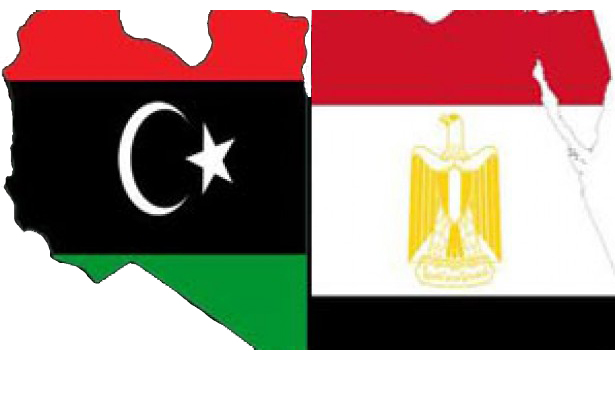The Speaker of the Libyan Parliament in Tobruk loyal to General Khalifa Haftar,
Aquila Saleh, has commented on the cooperation agreements signed between the
internationally recognised Libyan Prime Minister Fayez al-Sarraj and Turkish
President Recep Tayyip Erdogan.
Saleh, in his speech to the Egyptian parliament on Sunday, said: “We may have to
invite the Egyptian armed forces to intervene if there is foreign interference in our
country.”
Saleh’s words were met with a standing ovation from members of the Egyptian
parliament.
“History will not forget to record the position of the Libyans in the face of what they
have been subjected to [in terms of] Turkish aggression.”
In the same context, the Egyptian Foreign Ministry announced that it welcomed the
ceasefire in Libya, but at the same time stresses the need to continue combating
extremist organisations and deal firmly with any external intervention that supports
them.
Egypt usually accuses the security forces and the fighting factions of the
internationally recognised Government of National Accord (GNA), of being
extremists and terrorist militias.
Observers have expressed fears that this statement means, in practice, that Cairo
supports the continuation of the fighting in Libya despite the ceasefire entering into
force.
In a statement issued on Sunday evening the Egyptian Foreign Ministry also
demanded that this agreement be followed.
This means that the Egyptian regime sets conditions for a ceasefire, even though the
agreement was originally unconditional.
The GNA accuses the Egyptian regime of supporting the forces of General Khalifa
Haftar, which calls itself the Libyan National Army (LNA), while the accord
government describes them as outlaw militias.
When Turkey and Russia called for a ceasefire in Libya, the GNA immediately
welcomed this, while Haftar announced his rejection of the ceasefire. However, he
returned only half an hour before the agreement came into effect to announce his
approval of it.
Diplomatic sources say that Haftar refused the ceasefire under pressure from the
Egyptian regime, but in the end, he retreated when Russia intervened to pressure
him.
The parties to the conflict in Libya, the LNA and the GNA, announced, finally, their
commitment to a ceasefire from midnight on January 12 in response to an initiative
by the Russian President Vladimir Putin and the Turkish President Recep Tayyip
Erdogan. But the two sides exchanged accusations of breaching the agreement hours
after it came into effect.
An Egyptian journalist specialising in Libyan affairs told Egypt Watch that Cairo does
not intend to intervene directly in Libya, but is observing events with concern until
the ceasefire takes place based on a Turkish-Russian initiative.
This initiative means that actors in Libya have changed and that the Egyptian regime
no longer has the most influence… or any influence.
While Turkey is considered the largest supporter and in control of the GNA, Russia
will be considered the party controlling Haftar, and it is he who succeeded in pushing
him to accept the ceasefire initiative.
Turkey and Russia implemented the agreement without the presence of any
representative of the Egyptian regime, which means that it lost its position and its
ability to direct matters in Libya.
On the other hand, Turkey has proven its presence as an essential part of solving the
Libyan crisis.
The Egyptian regime is trying to swim against the current and thwart the ceasefire in
Libya to demonstrate that it cannot be excluded in any agreement or settlement in
Libya.





Recent Comments